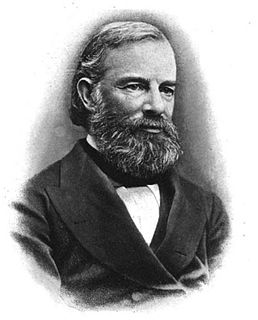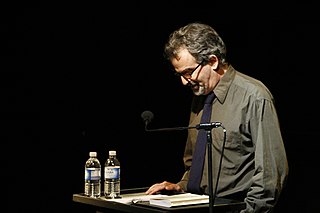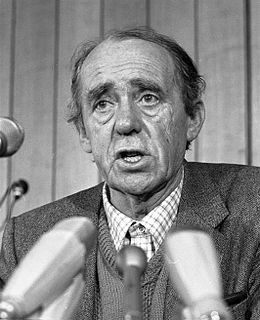A Quote by Ralph Waldo Emerson
Every word was once a poem. Every new relation is a new word.
Related Quotes
The word; the forth-speaking of a thought, an idea, a truth, is the beginning of every new creation, or pulse of creation. It is the inauguration of every new order of things; it begins every new messianic reign, every coming of a better time. The darkness never comprehends it; but always, to as many as receive it, it gives power.
Behind every word a whole world is hidden that must be imagined. Actually, every word has a great burden of memories, not only just of one person but of all mankind. Take a word such as bread, or war; take a word such as chair, or bed or Heaven. Behind every word is a whole world. I'm afraid that most people use words as something to throw away without sensing the burden that lies in a word.
The secret of good writing is to strip every sentence to its cleanest components. Every word that serves no function, every long word that could be a short word, every adverb that carries the same meaning that’s already in the verb, every passive construction that leaves the reader unsure of who is doing what—these are the thousand and one adulterants that weaken the strength of a sentence. And they usually occur in proportion to the education and rank.
Don't ever believe that you are going to be peaceful-life is not like that. When you are changing all the time, you've got to continue to keep adjusting to change, which means that you are going to be constantly facing new obstacles. That's the joy of living. And once you are involved in the process of becoming, there is no stopping. You're doomed! You're gone! But what a fantastic journey! Every day is new. Every flower is new. Every face is new. Everything in the world is new, every morning of your life. Stop seeing it as a drag!
I write because to write a new sentence, let alone a new poem, is to cross the threshold into both a larger existence and a profound mystery. A thought was not there, then it is. An image, a story, an idea about what it is to be human, did not exist, then it does. With every new poem, an emotion new to the heart, to the world, speaks itself into being.








































